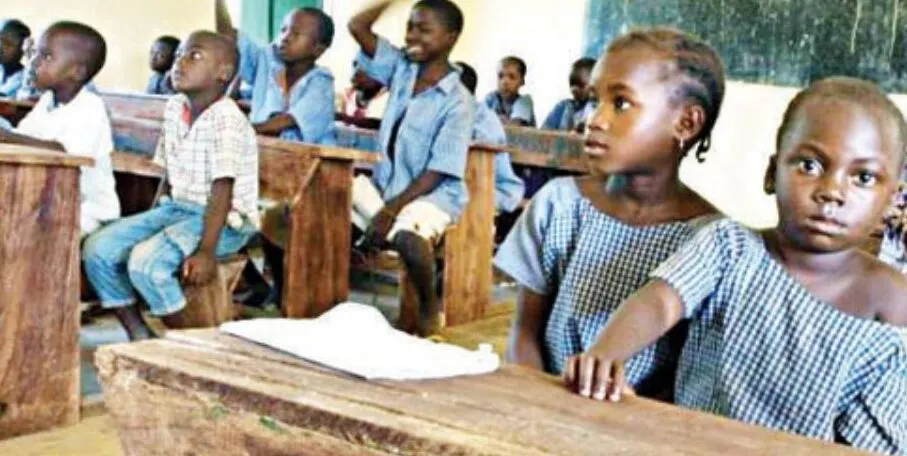Addressing the Challenges in Nigeria’s Primary Education

A Nigerian primary school classroom with children learning -ARDnig
Nigeria’s primary education faces neglect, underfunding, and insecurity, leaving millions of children without access to learning. States must prioritize teacher welfare, infrastructure, and UBE fund access. With improved policies and commitment, Nigeria can provide education for all.
The State of Primary Education
Nigeria’s primary education system is in crisis, leaving millions of children without access to basic education. With the second-highest number of out-of-school children globally, the situation threatens the nation’s future. Shockingly, many states fail to utilize available funds to improve education. Over N135 billion in Universal Basic Education (UBE) grants remained unclaimed between 2020 and 2024 due to unmet conditions and poor accountability. This negligence prevents children from receiving the education they need to succeed in life and work.
Neglect of Educational Resources
Many states neglect their responsibility to provide quality education, with only Katsina and Kaduna accessing grants in 2024. From 2020 to 2023, 27 states failed to use funds designated for education development. This is often due to poor governance and a lack of accountability for previously accessed funds. Additionally, budget allocations to primary education remain low, with many states not implementing their planned budgets. As a result, students suffer, learning in unsafe and unsuitable environments, such as sitting on bare floors or under trees.
The Challenges Teachers Face
Teachers are vital to improving primary education, yet their morale is low due to poor salaries and irregular payments. Some states have not even implemented the N30,000 minimum wage. With no significant teacher recruitment in the last 15 years, schools rely on Parent-Teacher Associations (PTAs) and alumni groups to fill the gap. This lack of support leaves teachers overburdened and underpaid, further weakening the education system.
“Investing in primary education is the foundation for building a brighter and stronger Nigeria.”
Impact of Insecurity on Education
Insecurity is another factor contributing to the high number of out-of-school children. Between December 2020 and April 2023, violence forced the closure of over 11,500 schools in the North. UNICEF reports that Nigeria has 18.3 million out-of-school children, with 10.1 million at the primary level. Without action, these children risk missing out on the education needed to break the cycle of poverty and unemployment.
Solutions for a Better Future
State governments must take immediate action to address these challenges. They should meet the requirements to access UBE funds, prioritize teacher welfare, and invest in infrastructure. Offering free education, school meals, and improving security can encourage more children to attend school. These measures will ensure that Nigeria’s youth could learn and build a brighter future for themselves and the nation.
Conclusion
Nigeria’s primary education crisis requires urgent attention. By accessing available funds, prioritizing teachers, and improving infrastructure, the nation can secure a better future for its children. Together, we can ensure every child gets the education they deserve.










